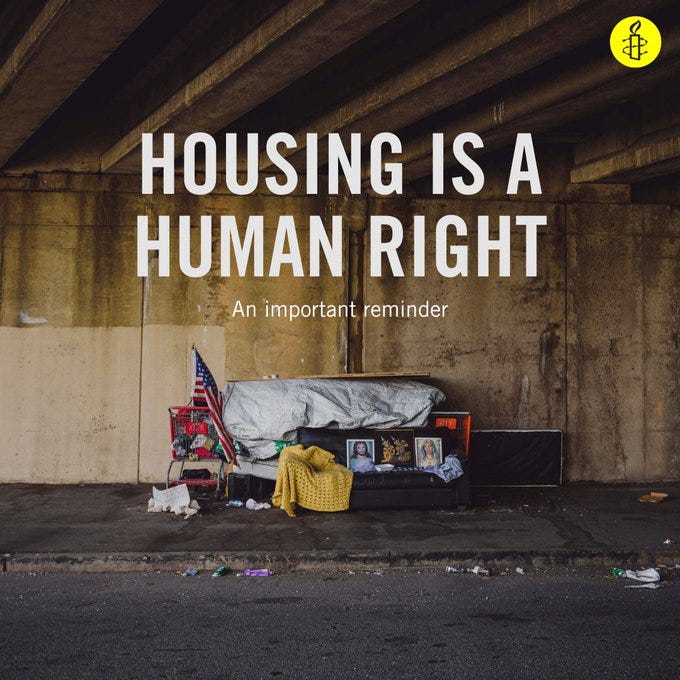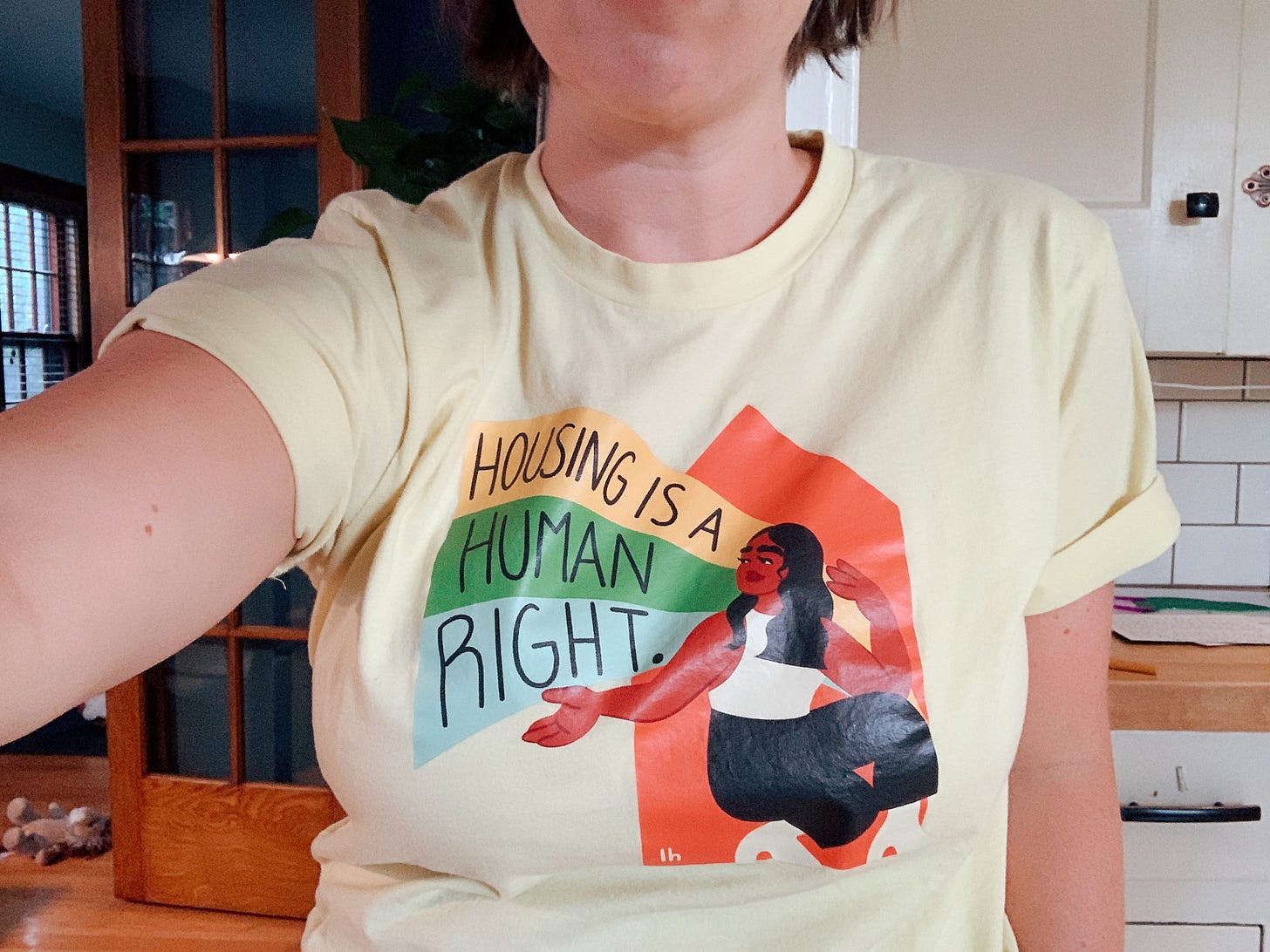
What would it look like if we actually believed housing was a human right? What would that mean? How would our policies reflect that?
We wouldn’t leave it to the market to sort out. We wouldn’t support the financialization of housing — that is, the view of housing as a financial investment first, shelter second. We wouldn’t consistently slash federal and state budgets for housing subsidy. We wouldn’t cut out our neighbors with the very lowest incomes, or no income, from the conversation. We wouldn’t criminalize homelessness.
Earlier this month, I attended a workshop session called “Lasting Affordability: How Community Land Trusts Inspire Wealth Creation for Black and Brown Families.” I was struck by hearing from Rob Robinson, Senior Advisor for Partners for Dignity and Rights.
Rob Robinson is a formerly homeless community organizer and activist based in New York City. His work focuses on changing people’s fundamental relationship to land and housing.
He spoke about the need for a radical culture shift when it come to thinking about land and housing. He reminded us that while building wealth is an important part of the conversation, wealth can also be easily extracted and lost.
Rob mentioned two countries with constitutions that explicitly recognize a right to housing: Brazil and South Africa.
Brazil’s constitution establishes the right to housing, along with health, food, education, security, and assistance to the poor. It also states that property must perform a social function, which is often interpreted to mean that land allocation should promote the public interest and equitable distribution.
South Africa’s constitution establishes that everyone has the right to have access to adequate housing, and that the federal government is responsible for implementing that right.
A quick Wikipedia search (sorry to the scholars out there for this citation, but also my general lack of scholarly references) tells me that Nigeria’s constitution also includes a right to housing, and it looks like Scotland and France are also on board.
Article 25 of the United Nations’ Universal Declaration of Human Rights explicitly includes housing as a human right as well. The United Nations Human Settlements Programme (UN-Habitat) is charged with promoting socially and environmentally sustainable towns and cities, and their website says this:
Everyone has a fundamental human right to housing, which ensures access to a safe, secure, habitable, and affordable home. UN-Habitat places affordability, sustainability and inclusiveness of the housing sector at the core of the urbanization process to ensure access to adequate housing for all. Housing is more than just a roof; it’s the opportunity for better lives and a better future.

There seems to be some tacit agreement around the world that housing is a human right. And yet, we don’t treat it that way.
We don’t enact policies and budgets to support a right to housing. See this Urban Institute article “Naming Housing as a Human Right Is a First Step to Solving the Housing Crisis”.
I’m deeply invested in expanding access to housing and even I don’t uphold this as a lived, embodied and guiding value most days. Because we get bogged down in the details, the strategies and our inboxes. Most weeks, I’m buried under budgets and spreadsheets and cash flow reports and grant compliance and, more often than I ever imagined, conversations about sewer lines. This is important, of course; it’s the implementation, the stuff of reality. To harken back to something I said last year, “Shelter is a basic human right, and I think we often overlook that point when we talk about housing.”
I don’t want to lose sight on the bigger picture. I don’t want to lose sight of the fundamental human right to housing, and the work of those like Rob Robinson that vitally highlights the need to for a culture shift. The work of local activists to make sure we don’t criminalize our unhoused neighbors or ignore the eviction crisis that is threatening our community.
Housing is a human right? Let’s prove it.









Spot on.
💯